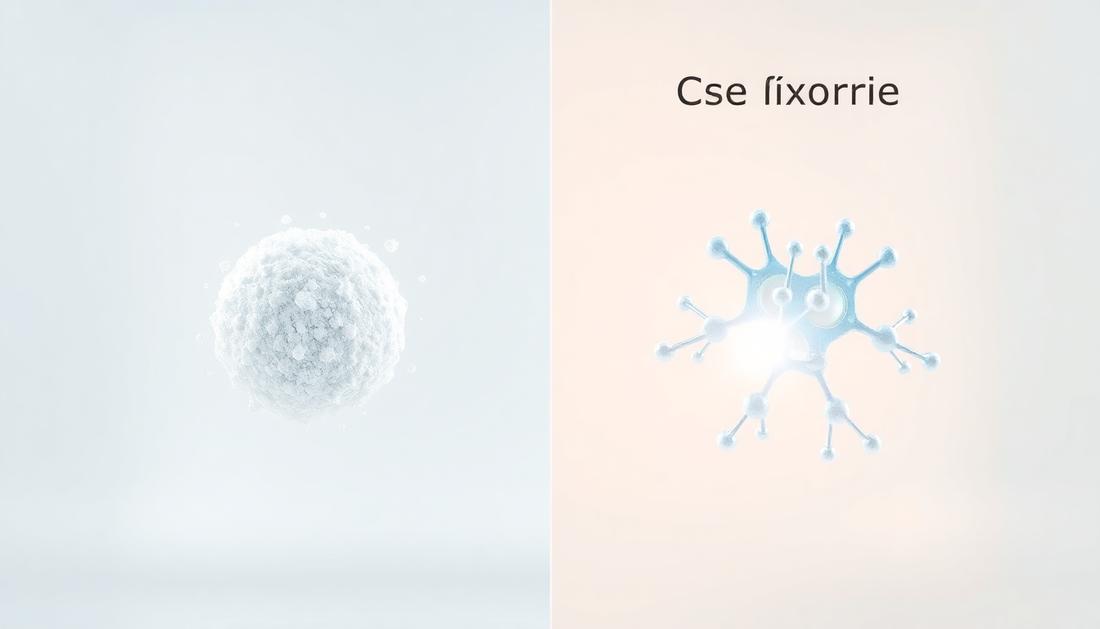
Mineral vs. Chemical Sunscreen: Which One is Best for Your Skin?
Share
Protecting your skin from the sun's harmful UV rays is crucial, no matter your age or skin type. With so many sunscreen options on the market, it can be overwhelming to choose the right one. Two of the most common types are mineral and chemical sunscreens, each with its own unique benefits and drawbacks. In this blog post, we'll dive into the differences between these two sunscreen formulas to help you determine which one is best for your skin.
Understanding Mineral Sunscreen
Mineral sunscreens, also known as physical sunscreens, use natural mineral ingredients like zinc oxide and titanium dioxide to create a physical barrier that reflects and scatters UV rays away from the skin. These sunscreens work immediately upon application, making them a great choice for those with sensitive skin or who are prone to irritation from chemical sunscreens.
The key benefits of mineral sunscreens include:
- Gentle and non-irritating: Mineral sunscreens are less likely to cause redness, stinging, or other skin reactions, making them ideal for those with sensitive skin or conditions like rosacea.
- Broad-spectrum protection: Mineral sunscreens effectively block both UVA and UVB rays, providing comprehensive sun protection.
- Natural and eco-friendly: Zinc oxide and titanium dioxide are naturally occurring minerals, making mineral sunscreens a more environmentally-friendly option compared to some chemical sunscreens.
On the downside, mineral sunscreens can sometimes leave a white, chalky cast on the skin, especially on darker skin tones. They may also feel thicker and heavier on the skin compared to their chemical counterparts.

Understanding Chemical Sunscreens
Chemical sunscreens, on the other hand, use a blend of synthetic ingredients like oxybenzone, avobenzone, and octocrylene to absorb and dissipate UV rays. These sunscreens are generally lighter in texture and easier to blend into the skin, making them a popular choice for active lifestyles and everyday use.
Some of the key benefits of chemical sunscreens include:
- Cosmetically elegant: Chemical sunscreens tend to have a smoother, more lightweight texture that blends seamlessly into the skin, leaving behind no white cast.
- Suitable for active lifestyles: The lightweight formula of chemical sunscreens makes them less likely to feel heavy or greasy, even during physical activity or sweating.
- Broad-spectrum protection: Like mineral sunscreens, many chemical sunscreens offer protection against both UVA and UVB rays.
However, chemical sunscreens do have some potential drawbacks. They may be more irritating for those with sensitive skin, and there are ongoing discussions about the potential environmental impact of certain chemical sunscreen ingredients.
Comparative Analysis
When it comes to the effectiveness of sun protection, both mineral and chemical sunscreens can be equally effective, as long as they are applied correctly and in the recommended amounts. However, there are some key differences to consider:
- Skin protection: Mineral sunscreens are generally considered more effective at blocking UVA rays, while chemical sunscreens may be better at blocking UVB rays. For comprehensive protection, look for a broad-spectrum sunscreen that contains a combination of mineral and chemical filters.
- Application and texture: Mineral sunscreens can sometimes leave a white, chalky cast on the skin, especially on darker complexions. Chemical sunscreens, on the other hand, tend to have a more cosmetically elegant, lightweight texture that blends in seamlessly.
- Environmental impact: Mineral sunscreens are generally considered more environmentally friendly, as they don't contain the same synthetic chemicals that can potentially harm marine ecosystems.
- Suitability for skin types: Mineral sunscreens are often recommended for those with sensitive skin or conditions like rosacea, as they are less likely to cause irritation. Chemical sunscreens may be better suited for active lifestyles or those with oily skin types.
How to Choose the Right Sunscreen
When selecting a sunscreen, it's important to consider your skin type, activity level, and personal preferences. If you have sensitive skin or are concerned about the environmental impact of your sunscreen, a mineral-based formula may be the better choice. For those with an active lifestyle or who prefer a more cosmetically elegant texture, a chemical sunscreen may be the way to go.
Regardless of your preference, be sure to choose a broad-spectrum sunscreen with an SPF of 30 or higher, and apply it generously and consistently to ensure optimal protection.
Top Recommendations
At Glowtalebeauty, we've curated a selection of the best mineral and chemical sunscreens to meet the diverse needs of our customers. Here are some of our top picks:
Best Mineral Sunscreens:
- Glowtalebeauty Mineral Sunscreen SPF 50+
- Coola Mineral Sun Silk Crème SPF 30
- Supergoop! Mineral Sheerscreen SPF 30
Best Chemical Sunscreens:
- Glowtalebeauty Clean Screen Mineral Sunscreen SPF 30
- La Roche-Posay Anthelios Ultra-Light Fluid SPF 60
- Neutrogena Hydro Boost Water Gel Lotion SPF 50

Conclusion
When it comes to sun protection, there's no one-size-fits-all solution. Both mineral and chemical sunscreens have their own unique benefits and drawbacks, and the best choice for you will depend on your individual skin type, lifestyle, and personal preferences. By understanding the differences between these two sunscreen formulas, you can make an informed decision and find the perfect sun protection for your skin.
Remember, consistent sun protection is key to maintaining healthy, glowing skin. Regardless of which sunscreen you choose, be sure to apply it generously and reapply as needed throughout the day. Happy sun-safe adventures!
